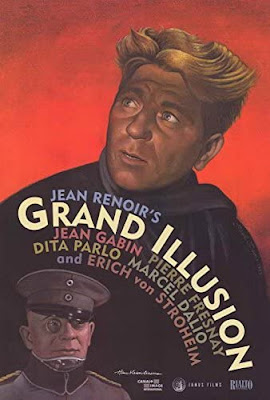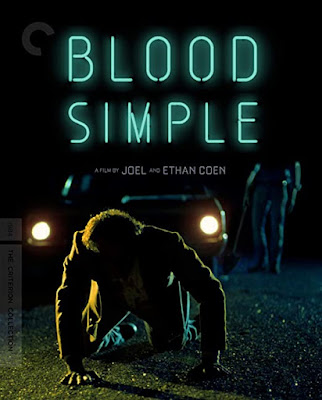With everyone’s mind on the war in Ukraine right now, it seemed an appropriate time to look at one of the great anti-war classics, Jean Renoir’s La Grande Illusion. This 1937 release is better known in America by its English-language title, Grand Illusion. Renoir, the son of the famous French Impressionist painter, himself fought for France during the first World War. (His “everyman” lead actor, Jean Gabin, in fact wears Renoir’s own military uniform on-screen.) Grand Illusion has been declared a masterpiece by such noted American cinéastes as Martin Scorsese and Orson Welles. We’re lucky today that a nitrate-negative movie that once seemed to exist only in smudged prints has—thanks to a complex set of circumstances involving a Russian film archive—been rescued, lovingly restored, and re-released.
This story of a German POW camp and its French inmates is not simply saying, as so many films do, that war is hell. Grand Illusion also explores the role of social class in determining a response to armed conflict. The prison camp is run by the always formidable Erich von Stroheim, playing Major von Rauffenstein, a German aristocrat with splendid manners and a taste for the finer things. Melancholy about the war wounds that keep him from playing a more active role in the fighting, he invites downed French air corps officers to join him for lunch. That’s how he comes to know a fellow aristocrat, Pierre Fresnay’s Captain de Boëldieu, and the two turn out to have much in common, despite their different national origins. Aside from mutual acquaintances and fond memories of dinners at Maxim’s, both feel an obligation to a life of chivalry and patriotism, expressed through daring deeds. As Boëldieu will later put it—just before he makes a climactic gesture--"For a commoner, dying in a war is a tragedy. But for you and me, it's a good way out.”
Though these two aristocrats have a natural rapport, the common French soldiers in the camp feel no affection for wartime chivalry and derring-do. Their first and only goal is to escape, and they work at it throughout the film, digging secret tunnels and otherwise trying to elude their captors, wherever they happen to be held. Though they sometimes engage in jolly horseplay, like a drag show where they’re outfitted as Parisian can-can girls, the lure of freedom is something they can’t forget. It is only when they find themselves in a grim and seemingly impregnable fortress that Gabin’s Lieutenant Maréchal and the nouveau-rich Jewish buddy (Marcel Dalio) with whom he tentatively bonds find a way to escape their surroundings. I won’t go into the role Captain de Boëldieu plays in their desperate scheme, but it leads directly into the most powerful section of the film. Eventually this gives way to a sweet idyll in the German countryside, complete with a kindly German war widow and a cow, before the film comes to a satisfying close.
In 1937, with the forces leading to World War II ramping up, Nazi propaganda minister Joseph Goebbels demanded that prints of Grand Illusion be impounded and destroyed. In 1940 the French government also banned the film, afraid that its even-handed look at German fighting forces would tamp down anti-German fervor during wartime. Today, it’s hard to view any armed conflict as heroic; the “grand illusion” that war is patriotic, and that it brings out the noble side of human nature, seems belied at every turn. Which is all the more reason why Renoir’s masterwork should not be easily forgotten.



